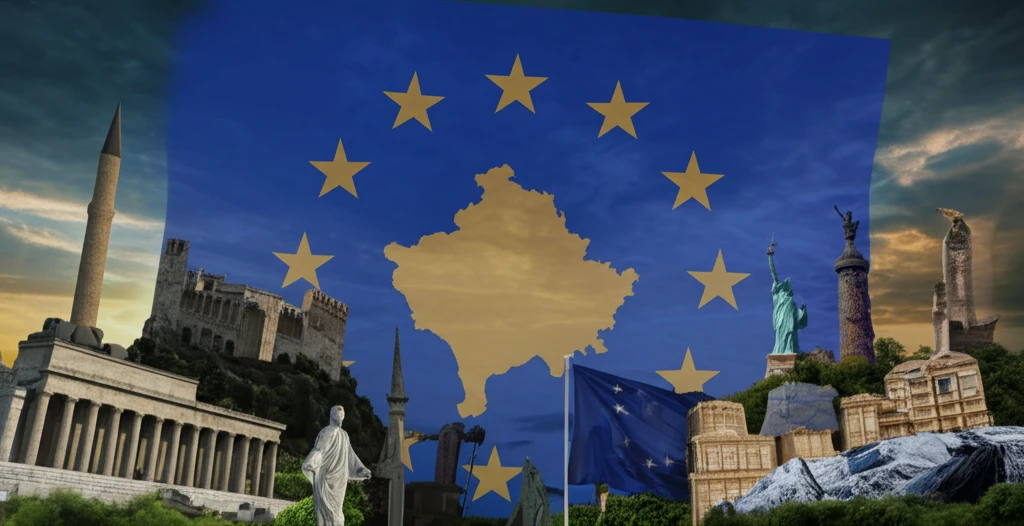
Kosovo's EU Dream: Navigating Political Hurdles and Visa Liberalization
"A comprehensive look at Kosovo's journey towards European integration, the challenges it faces, and the steps needed to achieve visa-free travel."
Kosovo's aspirations to join the European Union represent a key ambition following its declaration of independence. The journey towards European integration is multifaceted, involving complex political, economic, and legal reforms. This article delves into the core issues surrounding Kosovo's EU integration process, examining the political criteria, the implementation of the Stabilization and Association Agreement (SAA), and the ongoing struggle for visa liberalization.
Understanding the dynamics between Kosovo and the EU requires a detailed analysis of the institutions involved, the methodologies employed, and the overall behavior of Kosovo’s government. This includes assessing how Kosovo is meeting the political benchmarks set by the EU, exploring the historical context of EU enlargement, and examining the current contractual relationships between Kosovo and the EU.
Visa liberalization remains a critical issue for Kosovo, symbolizing both progress and ongoing challenges. This article explores the advantages and disadvantages of the prolonged visa liberalization process, the latest political criteria for visa liberalization, and the impact of EU member states' reluctance. Ultimately, it seeks to provide a clear understanding of the steps Kosovo must take to solidify its European future.
Political Criteria: The Foundation of EU Integration

The fulfillment of political criteria is paramount for any country seeking EU membership. For Kosovo, this involves demonstrating a commitment to democracy, rule of law, human rights, and protection of minorities. These principles are not merely abstract ideals but are measured through concrete actions and reforms implemented by Kosovo's institutions.
- Democracy and Rule of Law: Strengthening democratic institutions, ensuring the independence of the judiciary, and combating corruption are crucial.
- Human Rights and Protection of Minorities: Guaranteeing the rights of all citizens, including ethnic and religious minorities, is essential.
- Regional Cooperation and International Obligations: Fostering good neighborly relations and adhering to international agreements are vital for regional stability and EU integration.
Recommendations: Charting a Course for the Future
To accelerate its European integration process, Kosovo must adopt a proactive and coordinated approach. This includes strengthening institutional capacity, promoting transparency and accountability, and fostering a culture of dialogue and cooperation. By addressing the remaining challenges and capitalizing on its strengths, Kosovo can solidify its position as a future member of the European Union.
